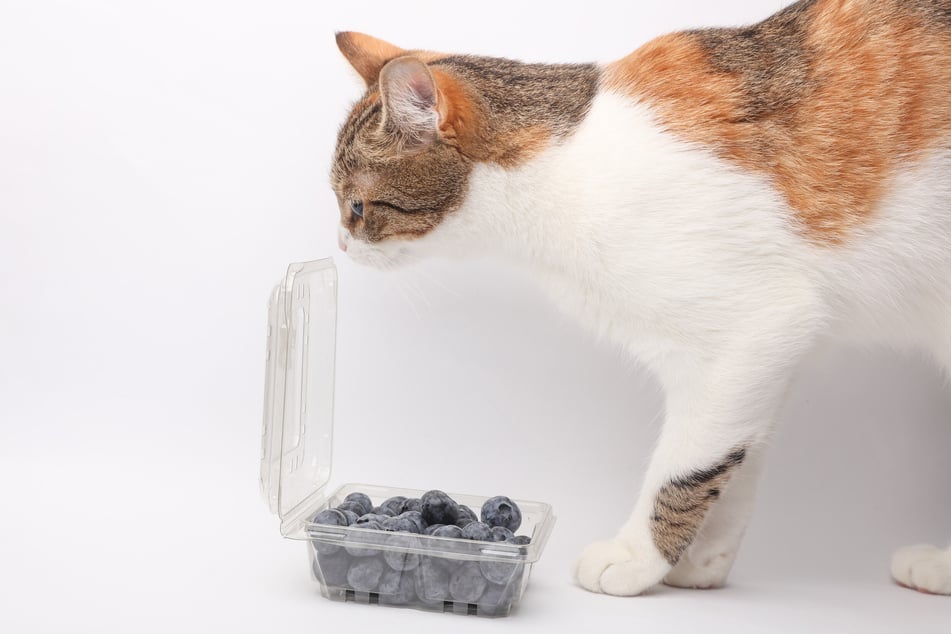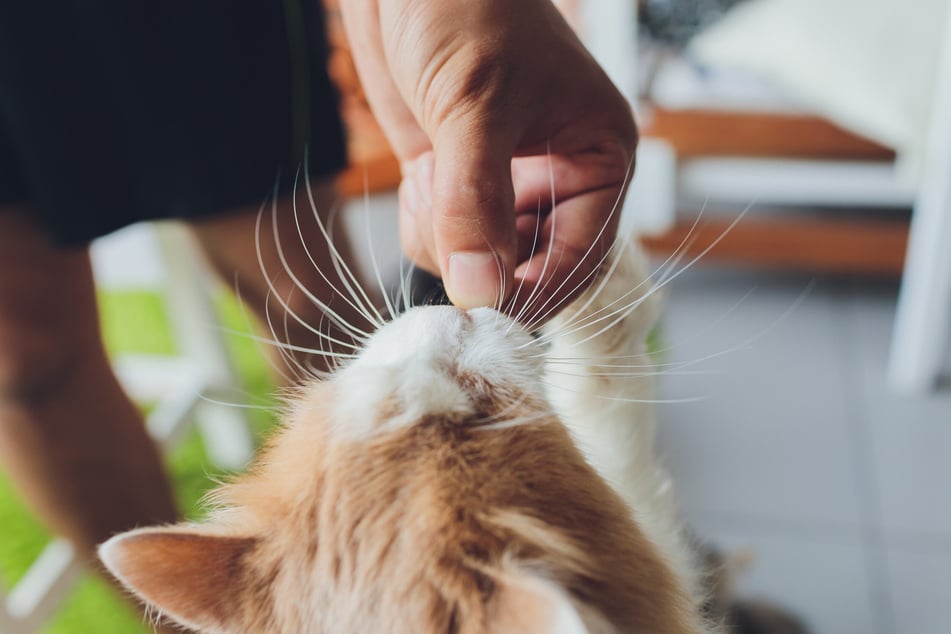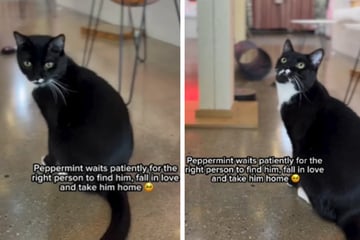Can cats eat blueberries?
If you have a cat with a sweet tooth who is partial to a plate of fruit, you might have wondered whether it's safe for your feline friends to eat blueberries.

Cats are pure carnivores, so the proportion of meat in their diet should be around 95%.
Not every type of fruit and vegetable is harmful to cats per se, but special care should be taken.
That's because eating food that contains sugar increases a cat's risk of diabetes.
Apples, bananas, pears, and the like contain too much sweet stuff, and even small amounts of grapes and raisins can cause symptoms of poisoning.
However, there are also some low-sugar fruits that are usually safe for cats to eat.
So what about blueberries and their Eurasian cousins, bilberries?
Are blueberries poisonous to cats?
Blueberries and bilberries are not poisonous for cats.
On the contrary – they actually contain important ingredients for a cat's health:
- Antioxidants protect against heart disease and cancer.
- Vitamin C strengthens the immune system.
- Vitamin K promotes bone health.
- Dietary fiber supports digestion.
- Manganese and zinc help with metabolism.
Because of these benefits, some cat foods also contain blueberries.
Should you give your cat blueberries?
Cats are allowed to eat blueberries – but only in moderation! They are definitely not suitable as a full meal, but could work well as a small snack or treat between meals.
You can safely give a cat two to four ripe and washed berries two to three times a week.

If you want to feed blueberries to a cat, you can also cut them up, purée them or offer them as a frozen snack in summer.
Caution! Young kittens should not eat blueberries as they can cause stomach and intestinal problems.
The upshot
Good news for furry fans of fruit: cats can eat blueberries in moderation. They are occasionally suitable as a healthy treat, but should not be given to kittens until they're all grown up.
Cover photo: 123rf/splitov27
